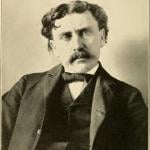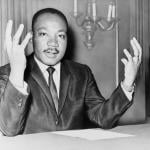 The biography of Christopher Tollefsen, the conference’s sixth speaker:
The biography of Christopher Tollefsen, the conference’s sixth speaker:
“Chris Tollefsen is an associate professor in the department of philosophy at the University of South Carolina, the director of the graduate program in philosophy. He received his doctorate from Emory University in 1995 and has taught at Princeton University, the Spiritan Institute of Philosophy in Ghana, and since 1997 the University of South Carolina. He is the author of several articles and reviews as well as two books, Biomedical Research and Beyond: Expanding the Ethics of Inquiry published by Routledge, and with co-author Robert P. George, Embryo: A Secular Defense of Life, published by Doubleday.
Chris Tollefsen is an associate professor in the department of philosophy at the University of South Carolina, the  director of the graduate program in philosophy. He received his doctorate from Emory University in 1995 and has taught at Princeton University, the Spiritan Institute of Philosophy in Ghana, and since 1997 the University of South Carolina. He is the author of several articles and reviews as well as two books, Biomedical Research and Beyond: Expanding the Ethics of Inquiry published by Routledge, and with co-author Robert P. George, Embryo: A Secular Defense of Life, published by Doubleday.”
director of the graduate program in philosophy. He received his doctorate from Emory University in 1995 and has taught at Princeton University, the Spiritan Institute of Philosophy in Ghana, and since 1997 the University of South Carolina. He is the author of several articles and reviews as well as two books, Biomedical Research and Beyond: Expanding the Ethics of Inquiry published by Routledge, and with co-author Robert P. George, Embryo: A Secular Defense of Life, published by Doubleday.”
Here’s my edited summary of Tollefsen’s talk, entitled “Disability and Social Justice.” Mistakes are Strachan’s; profundity is Tollefsen’s.
Introduction
The core of liberalism, as a political philosophy, involves the recognition that human persons are free and equal, and that the state and its activities should respect these two correlative features of persons. The way in which these features are to be respected varies, of course, sometimes radically: think of the difference between what it means for Locke, and what it means for Rousseau, for a state to respect the freedom and equality of persons (see Locke, 1986; Rousseau, 1997). But this core recognition is at the basis of both Locke and Rousseau’s thought; it is similarly at the basis of Kant’s political thought (Kant, 1970); and it continues to play an essential—even the essential—role in the liberal political thought of the twentieth century, especially in the work of that century’s preeminent political theorist, John Rawls (Rawls, 1971, 1996).
The gains of liberalism are in many respects obvious, important, and indisputable. Yet in the past ten or so years, a form of criticism has been articulated that charges liberalism, both in its origins, and in its developed forms, with an inability to deal with a significant aspect of social life, namely, the facts of disability and dependence. So, for example, have thinkers as diverse as Alasdair MacIntyre, Eva Kittay, Hans Reinders, and, most recently, Martha Nussbaum, all argued (see MacIntyre, 1999; Kittay, 1998; Reinders, 2000; Nussbaum, 2006).
The source of their disquiet is in the interpretation that has been placed on the phrase “free and equal,” particularly as that interpretation has been seen through the lens of a third trait frequently lauded by liberalism, independence. Especially insofar as devices such as the social contract, or the original position, have been used to model the relations of free and equal persons, it has seemed that what liberalism means by the phrase is: individuals with the active abilities and dispositions to assert moral claims, and to engage reciprocally with those others who also assert moral claims to their mutual advantage. So, for Locke, free and equal individuals are precisely those capable of entering into the social contract; for Rousseau, those individuals capable of entering into and being guided by the general will; and for Rawls, those individuals capable of being “fully cooperating members of society over the course of a complete life” (Rawls, 1980, p. 546).
On any such interpretation, however, the radically disabled—those whose lives as a whole, or for some significant part, are characterized by continued and extreme dependency—will be outside the social contract.
Moreover, as Kittay especially has argued, insofar as the model person for liberalism is one who pursues his or her ends as a “self-originator” of moral claims, and enters into relations with others as a matter of the reciprocity due those others as free, equal, and ultimately independent, the inevitable concern that some have for the radically disabled will be left out of consideration in deliberations about justice. For while care for the disabled can be and often is a source of fulfillment for the caregiver, the claims which the caregiver must attend to in the first instance are precisely the claims of the dependent (Kittay, 1998, pp. 94-96).
There are various ways of responding to these difficulties. In this talk, I am primarily concerned with political responses; yet I note first a seemingly metaphysical response with political implications. This response involves a rejection of one ontological characterization of disability as, essentially, a medical problem, in favor of a characterization of disability as exclusively, or nearly so, an issue of social discrimination. By seeing the problem of disability as akin to the problem of race, the social model of disability seems to make that problem more tractable to liberalism (Silvers, 1998).
But other responses move more to the assumed framework of liberal political theory. One such approach to these difficulties is to reframe the nature of the liberal state, typically by moving beyond the contractarian features that seem primarily responsible for the narrow interpretation of “free and equal.” A second approach is to concede to liberalism at the political level many of the negative consequences for the disabled, and attempt to build a social ethic capable of addressing the needs of the dependent and disabled more satisfactorily than liberalism, but at something other than a political level. Finally, more radical criticism is possible, criticism that holds that liberalism is in some fatal way intrinsically flawed.
In this paper, I ask what the purposes of the state are, and argue that the state exists to serve a set of human needs, needs understood by way of a particular account of human flourishing. I then address the question of freedom and equality, the question from which liberal political theory takes its starting point. The natural law approach, I argue, can offer a twofold interpretation of freedom and equality, one metaphysical, one political. On the natural law view, the disabled are not an afterthought, nor is concern for the disabled extra to justice. The natural law view need not hold, however, that citizenship is a fundamental need of the disabled.
The Problem of Self-Sufficiency
Human deliberation, choice, and action all have as their point human flourishing and well-being. And practical reflection on the well-being possible through action to deliberating agents terminates in a finite number of basic goods, aspects of human well-being recognizable to human practical intelligence as desirable in themselves, and thus as underwriting the desirability of possible states of affairs which could be brought about through action. Such goods include life and health, knowledge, aesthetic experience, work and play, friendship, marriage, harmony with God, and the variety of forms of harmony possible within one’s own complex person: harmony of choice and action; judgment and choice; judgment, choice, action, and emotion.
In pursuing these goods, human beings need guidance, since there is a multiplicity of goods, incommensurable each with each. Maximization is not an option, but an attitude of openness to the goods is, and is prompted by practical reason. Most generally, such a normatively required attitude is expressed in the most general principle of morality: act always with a will compatible with integral human fulfillment. This general principle in turn can be specified further, as practical reason identifies ways of willing not so compatible, e.g., directly willing (intending) damage or destruction to one of the goods.
This summary of the first principles of a natural law ethics is extremely brief, but is intended primarily to establish the boundaries at which political questions arise. My proposal is that they arise at a particular juncture where the lack of self-sufficiency of human persons for flourishing is apparent.
Individuals just on their own are insufficient for their own flourishing: they require friends, marriage requires a spouse, and even substantive goods such as knowledge and aesthetic experience will suffer in the absence of cooperation and the generation through time of social forms and practices aimed at pursuit of these goods. So a flourishing human life is necessarily communal in various respects.
Consider, though, a pre-political society, or, more realistically, an overlapping set of such societies: multiple families, social institutions, churches, forms of work, businesses, and so on. Considering them as pre-political is, of course, an abstraction, and no state of nature argument is intended. The point, rather, is to show that although, as regards what goods are being pursued, persons in such an overlapping set of societies are self-sufficient, they are nevertheless not self-sufficient in a number of more instrumental ways.
In the move from consideration of individual pursuit of goods to social pursuit of goods, there were two kinds of inadequacy, two ways in which individuals were not self-sufficient. First, they were not self-sufficient as regards the range of goods they could pursue—social goods cannot be pursued except socially. Second, they were not self-sufficient as regards their effectiveness at pursuit of various goods that could only be pursued well socially.
Yet this set of overlapping social realities is manifestly inadequate for human flourishing in the following ways. First, they are subject to external attack from those outsiders who wish to take their resources or otherwise wrong them. Second, individuals are subject to wrongs internally by free-riders, and violators of distributive and commutative justice. Third, the various groups together suffer from a huge number of coordination problems, a lack of a common and accepted way of doing things together and separately as regards, e.g., transactions of goods, transportation and travel, resolution of disputes, and so on. And finally, and, in the context of this paper importantly, there is a further kind of lack of self-sufficiency.
Everyone begins life, most end life, and many spend additional periods of their life, in conditions of extreme dependency. Within the overlapping web of pre-political social realities envisaged here, many of those in such conditions of dependency are cared for by those with natural obligations to provide such care. In particular, families owe care to children, to the aged, and to the disabled; neighbors have some obligations as well. Moreover, some of the further social groups, such as churches, also take on such obligations, as part of their self-understood mission.
But the overlapping set of social realities is inadequate to all the problems of dependency and disability for at least the following reasons. First, not all individuals whose lives are so characterized do already, or continue to, live within small social structures in which the obligation to care is recognized and met. There is a threat, though, that the dependents’ needs will not be met.
Second, some who do have specified obligations to the dependent renege on those obligations, or otherwise abuse their charges. Again, the needs of the dependent are threatened.
Finally, some (and probably many) who make good faith efforts to meet the needs of those to whom they have obligations are incapable of fully meeting those needs. Both the well-being of the dependent, and of those who care for them are thus jeopardized.
Political Authority
We see clearly through the preceding that there is a need, in other words, for political authority. Now, this authority may come to exist simply because some person or group has taken upon themselves the responsibilities of authority and are in fact followed; there is no myth of consent undergirding the picture. But there are clearly forms of authority more and less adequate to the initial needs, and to the condition of the persons with those needs.
We are here quite close to the ideals of liberal democratic politics. But those ideals, insofar as they are liberal and democratic, enter into the picture later than the need for political authority just as such. The needs that govern the creation of political authority are the needs of all human beings within the set of overlapping communities, including those proximate, but for whatever contingent reason not currently cared for by some particular community; call these needs human needs, or needs of flourishing. The ideals of liberal democracy, and of democratic citizenship, are not foundational needs for political authority, but a constraint on how that authority most reasonably should be constituted. There is a need for such constraints, and for a democratic mode of politics; but it is a need of citizenship.
The Needs of the Disabled and the Dependency Worker
The very lives of the profoundly disabled are jeopardized by inadequate care; similarly, the flourishing of the dependency worker was threatened by the expenditure of time and resources that good care for their charges required. The ways in which the dependent and disabled are unable to pursue these goods adequately, or as adequately as they might be able to, are continuous with the ways in which all human beings, at various times, are unable to pursue these goods; and they are the very same goods. So the needs of the dependent and disabled stand at the foundation of political society just as much as any other set of needs for assistance in the pursuit of human flourishing.
This is true too of the needs of the dependency worker, with, I think, one important additional feature. For my purposes here, I will assume that the paradigm case of a dependency worker is that of a family member, with obligations to care for a relative—whether child, spouse, or parent, in some condition of extreme dependence; whether temporary or permanent. The resources of such agents are often greatly taxed by such work: the time, money, labor, and emotional investment necessary are considerable, and can leave such persons without the energy or material resources to do much else besides care and rest.
Moreover—and here there is a crucial difference, in many cases, between the needs of the dependent and the needs of the caregiver—there is, in the obligations which unexpected dependency create, a threat to the moral well-being of the caregiver. Consider the number of parents who have aborted disabled children, or refused them medical attention at birth, or “put away” disabled children in homes, or neglected elderly parents, or abandoned disabled spouses. Such behavior is to be expected: the agents must shoulder a moral burden for which they are often unprepared, and which they see does not fall on the shoulders of all those around them.
It is a commonplace that the burdens necessary to achieve the common good of a political society should be shared as fairly as possible. Political society does not make the right choices for such potential caregivers, but it can create to some extent a world in which those choices are shielded from adverse consequences; or, more accurately, it can assist others in meeting their responsibility to create such a world.
This leads to the second pair of concerns discussed earlier in this essay: those concerned with the moral, and other social, attitudes towards both the disabled and their caretakers. On the part of the disabled, hostility, discrimination, and indifference result in an environment which is more antagonistic to their flourishing than it need be, or than is reasonable. On the part of the dependency worker, indifference and lack of respect result in a sense that their work is unappreciated, and that they would be better off doing something more socially valued and financially remunerative. How can we see these concerns as aspects of the lack of self-sufficiency on the part of the disabled and their caregivers, such that they are proper concerns of the state?
Moral Ecology
I hope to suggest the beginnings of an answer here. Robert P. George, in Making Men Moral, introduced the notion of a moral ecology as part of the common good that a political society exists to serve (George, 1993). The notion fits in with the idea of self-sufficiency and its lack that I have discussed: the ability of an individual to make upright choices is greatly enhanced to the extent that that individual lives in a morally upright environment, and diminished if the situation is otherwise.
This type of legitimate concern of the state with the moral ecology of its citizens seems to me to exist at the border of issues of internal commutative injustice—the wrongs perpetrated by one citizen against another—for those who publicize pornography, for example, even if only to sell to other consenting adults, nevertheless show an unjust indifference to the goods of children and families.
The idea of the importance of a moral ecology as a part of the common good makes clear that, insofar as it acts with that good in mind, a state is not only permitted, but sometimes obliged to regulate otherwise private vices for public ends. The state can make things worse as well, such as when special inducements exist for parents to get rid of their disabled children; as when genetic testing is used to help parents abort Down syndrome children; or as when laws permit abortion of the disabled up to a later date than laws permitting “elective” abortion.
The state, then, can change structural features of the environment that are a result of those attitudes (like non-ramped buildings) but also by eliminating some avenues of expression of those attitudes, such as Prenatal Genetic Diagnosis (PGD) for the purposes of abortion, more permissive conditions for the abortion of the disabled, wrongful birth suits, and the de facto immunity of medical practitioners from prosecution for failing to treat “defectives.”
On the part of the dependency worker, too, the idea of a moral ecology can play an important role. If we take, again, as our paradigm of the dependency worker a family member who already has obligations to his or her charge, it is clearly unjust for society to permit an environment in which such workers are considered socially unproductive, drains on the economy or, in the case especially of parents who have not aborted disabled children, responsible for their own situation.
The Disabled and Citizenship
I have distinguished in this paper between needs of flourishing and needs of citizenship. Societies, and even the pre-political society of overlapping societies that has a need for political authority, all manifest, in each and every individual human being, the needs of flourishing. But the needs of citizenship are needs that arise in the context of the exercise of political authority; they are constraints necessary for government that is congruent with the status of persons.
Yet these claims cannot be unequivocally sustained at the political level. The sense in which adult human beings capable of governing as well as being governed are free and equal is not the sense in which those same human beings are the equals of children, for example, who are not yet ready to be politically governed, or to govern politically. Children do not yet manifest the needs of citizens, only the needs of flourishing.
The liberal democratic state in which citizens share in ruling and being ruled is thus a constraint on the political solution to the needs of flourishing; it is an answer to the needs of citizenship. But those with these needs are a subset of those with the needs of flourishing, for whom the political solution exists. The empowerments, rights, and responsibilities of citizenship are desirable for many, but they are not themselves among the primary needs for which political authority is needed in the first place.
In my view, while human beings are from the first social— sociality is intrinsic to their well-being—they are political in a secondary way, contra some like Martha Nussbaum who emphasize the opposite. This way can be described as “natural,” certainly, for the need for the political is inevitable to creatures who are social, and the political life, as serving important human needs, can be deeply fulfilling; but it is dependent on that prior sociality, and not on all fours with it. Similarly, it is dependent upon a prior set of basic goods, constitutive of human flourishing, for pursuit of which the political is instrumental.
This means, to reiterate, that on the natural law view described here, the moderately disabled, the temporarily dependent, the “normal” human person, the profoundly retarded, the brain damaged, and even those in a persistent vegetative state, are all alike as regards the fundamental reason that justifies political authority: all are inadequate in some respect or other for their own flourishing.
The natural law standpoint further enables resolution of a tension seemingly intrinsic to the attempt to embrace both the needs of the disabled and the demands of liberalism, for the natural law standpoint urges the protection of the lives of all dependent human beings, both born and unborn. The unborn are just like all of us (and all of us were once unborn) in their inevitable and radical dependence during at least some part of the lives; yet the state exists to meet those needs that we are inadequate to meet on our own. The state should protect the unborn for exactly the same reasons that it should protect disabled newborns, children, adults, and the elderly.
An adequate political approach to the needs of the disabled cannot abstract from the problem of abortion; but neither can it solve it only selectively, by addressing only the issue of abortion of the disabled. For this would be to reestablish again the same form of unfairness that those aborted, neglected, mistreated or abandoned because of disability suffer; that is, it would single out a class, in this case the non-disabled unborn, and allow action against them in virtue of their profound dependence.
Some Concluding Thoughts
Much more would need to be said to address all the issues and difficulties my account thus far has raised. But two related points here should be made about the implications of the approach taken, points that I cannot adequately address here.
On this approach, as mentioned (and here again, see MacIntyre, 1999), the disabled and dependent are not, as MacIntyre puts it, a “special” interest, for their interests are the very ones that, shared by all members of the society of overlapping societies, generate the need for political authority. This commonality is one that naturally, however, should direct our attention also to difference: the needs, the lacks, the inadequacies, the various ways in which human persons in society, and, indeed, many societies themselves, are non-self-sufficient—all of these are unique, though they display, of course, many common features as well.
This is seen clearly enough in the range of “normal” cases: the life best suited to one agent might not be best suited to another, and even an individual agent will have to reflect upon and discern which of various good options for the shaping of his or her life might be most suitable. But this is true also for the disabled: the particular way of life within which the gifts and capacities of one Down syndrome child will be best pursued and instantiated are not the same for all Down syndrome children.
This need for locality in considerations of individual flourishing should indicate both (1) the importance, where possible, of autonomy and freedom for the disabled, but also (2) the fact that, insofar as either the disabled are not, or are not yet, autonomous, and insofar as they have needs with respect to which they are not self-sufficient, their primary caregivers will be family members, friends, and local societies (such as churches)—all of whom are better situated epistemically, emotionally, and volitionally than is the political authority.
Conclusion
The state, it should be clear from this essay, exists as a subsidium, as a help or aid, to those pursuing their own human flourishing, one part of which includes carrying out of local and personal responsibilities. A second general point is that the needs that govern the justification for political authority are multiple: defense against outsiders, for example, and against internal criminality, as well as coordination of ways of life, partly by provision of infrastructural necessities such as roads and currency.
Moreover, in determining what will be done, what money spent, and what resources consumed by and for whom, the state must be fair as regards all its possible beneficiaries. The correlative to not viewing the disabled as a special interest group, but as on equal foundation with all as regards the justification for political authority, is, it seems, that their needs must be balanced against the needs of others which, while perhaps not as extensive, are nevertheless among the needs for which that authority exists. Consider this in the context of education: it is incumbent upon the state to provide resources by which those with special needs may be aided, but the needs of non-disabled children (and also exceptionally gifted children) must also be met.
Social justice for the disabled is thus a rigorous requirement for political authority, though it is not the only, or an inevitably overriding commitment. But it is a commitment, I have argued here, whose grounding and nature can best be understood from a natural law, and not a classically liberal, perspective.
My Take
Justin Barnard, Associate Professor of Philosophy at Union University and Director of the Carl F. H. Henry Institute for Intellectual Discipleship, responded to Tollefsen’s talk. The discussion also featured Robby George giving his take on Tollefsen’s talk.
Tollefsen nicely connects social justice with governmental activity. In particular, he showed how it is imperative that the government care for the disabled. Some will disagree over whether this concern should proceed from a natural law or a classically liberal perspective. I also appreciated how Tollefsen brought out the way that government restrains evil and creates conditions that expedite personal flourishing. It does not, one might say, reach out and grab citizens by the throat, but rather at its best impedes social ills and enables one to strive for freedom and happiness.
I also enjoyed Tollefsen’s careful delineation of the various groups that are affected by anti-life thinking. It is not only the disabled who stand to be harmed from the culture of death, but those who care for them. In addition, Tollefsen brought out how those who willingly engage in acts of evil like abortion cause pain not simply to themselves, but to their peers, even those who barely know them. His words remind us that we are not isolated, atomized selves, but persons knit into a social fabric that stands or falls away depending on the choices and actions of millions of people just like us.















